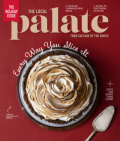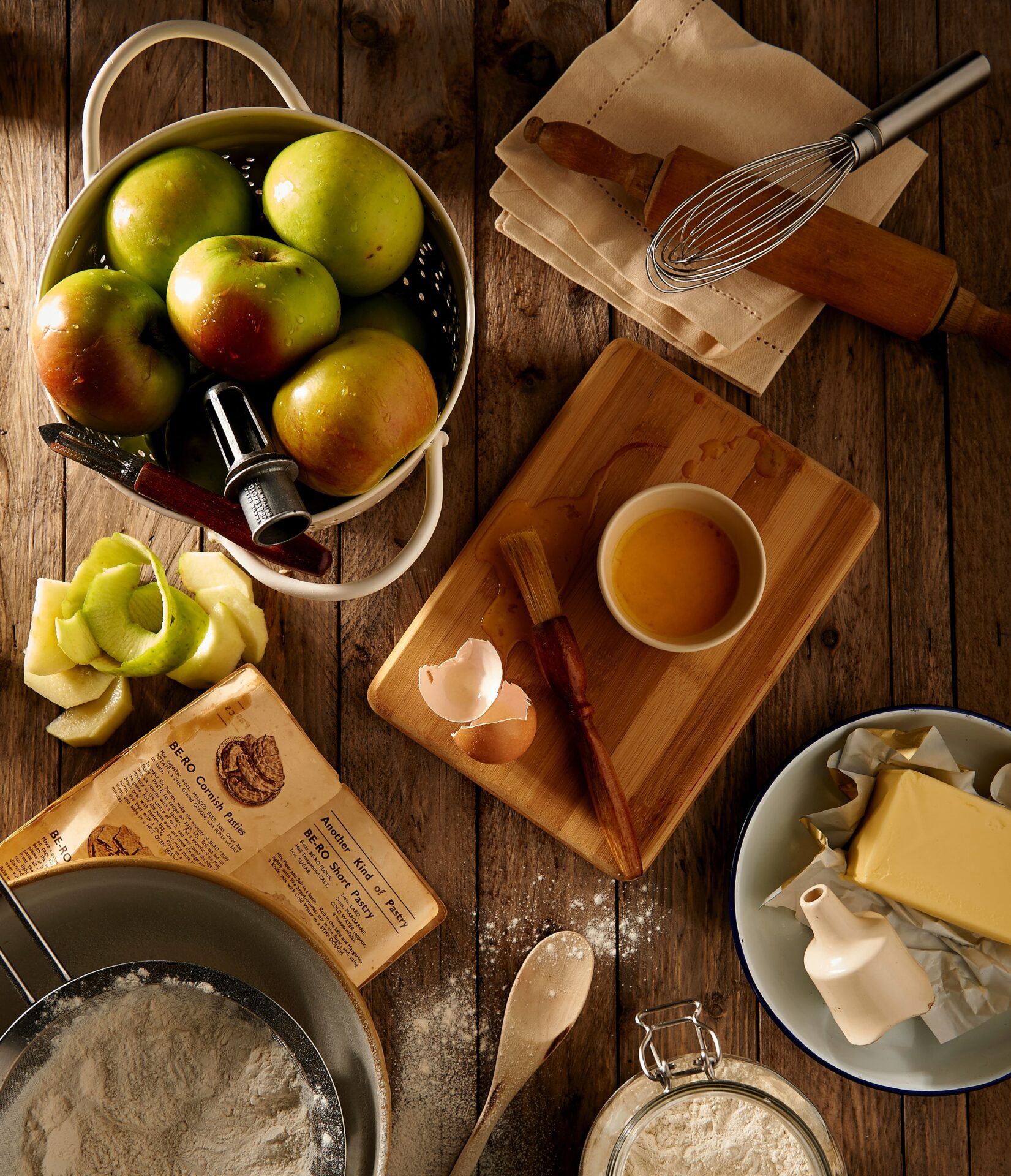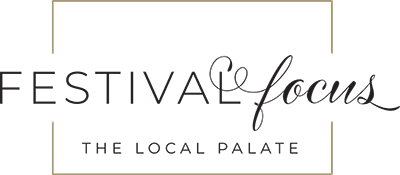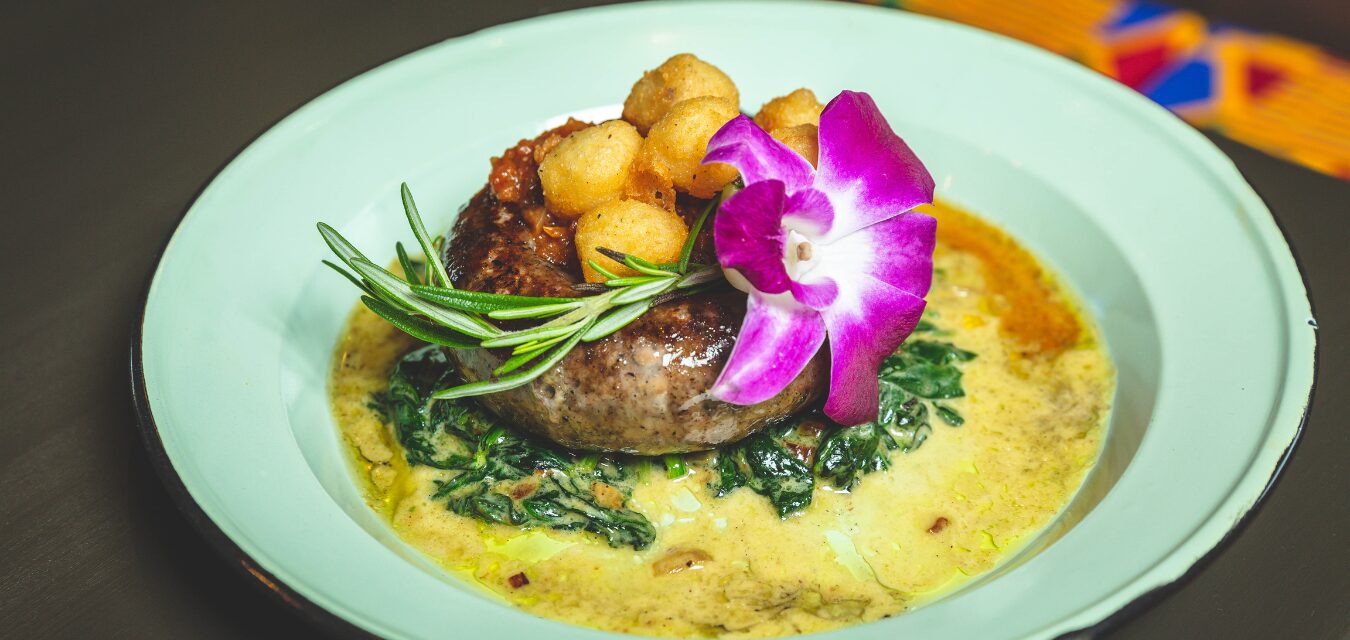
Ekhaya means being “at home” in the Bantu language—and it’s also owner and chef Zweli Williams’ vision for her newest restaurant of the same name. She has designed it to be a place where everyone is welcome and, simultaneously, where she can showcase African food and educate diners on the dishes she grew up eating.
In 2018, Zweli and Leo Williams (her husband, co-owner, and now mayor of Durham) opened Zweli’s—the first known Zimbabwean restaurant to open in the United States—in the Oak Creek Village shopping center on Durham-Chapel Hill Boulevard. (Temporarily closed, Zweli’s will reopen at Brightleaf Square in Durham in 2024.)
Ekhaya is an extension of Zweli’s and a space where Williams can share recipes and dishes from her upbringing in a more elevated, sexy space perfect for special occasions and date nights while learning about African cuisine. And plus, the location instantly amps up foot traffic.
“Opening Ekhaya at American Tobacco Campus has definitely allowed us to expand our customer base,” says Williams. The location in downtown Durham adjacent to the Durham Bulls Athletic Park, which brings in up to 10,000 people per game, is a game changer for the restaurant. “Not only have we been able to diversify our menu to other African countries but we have gained a significant amount of exposure and traction because of where we are located,” she says.
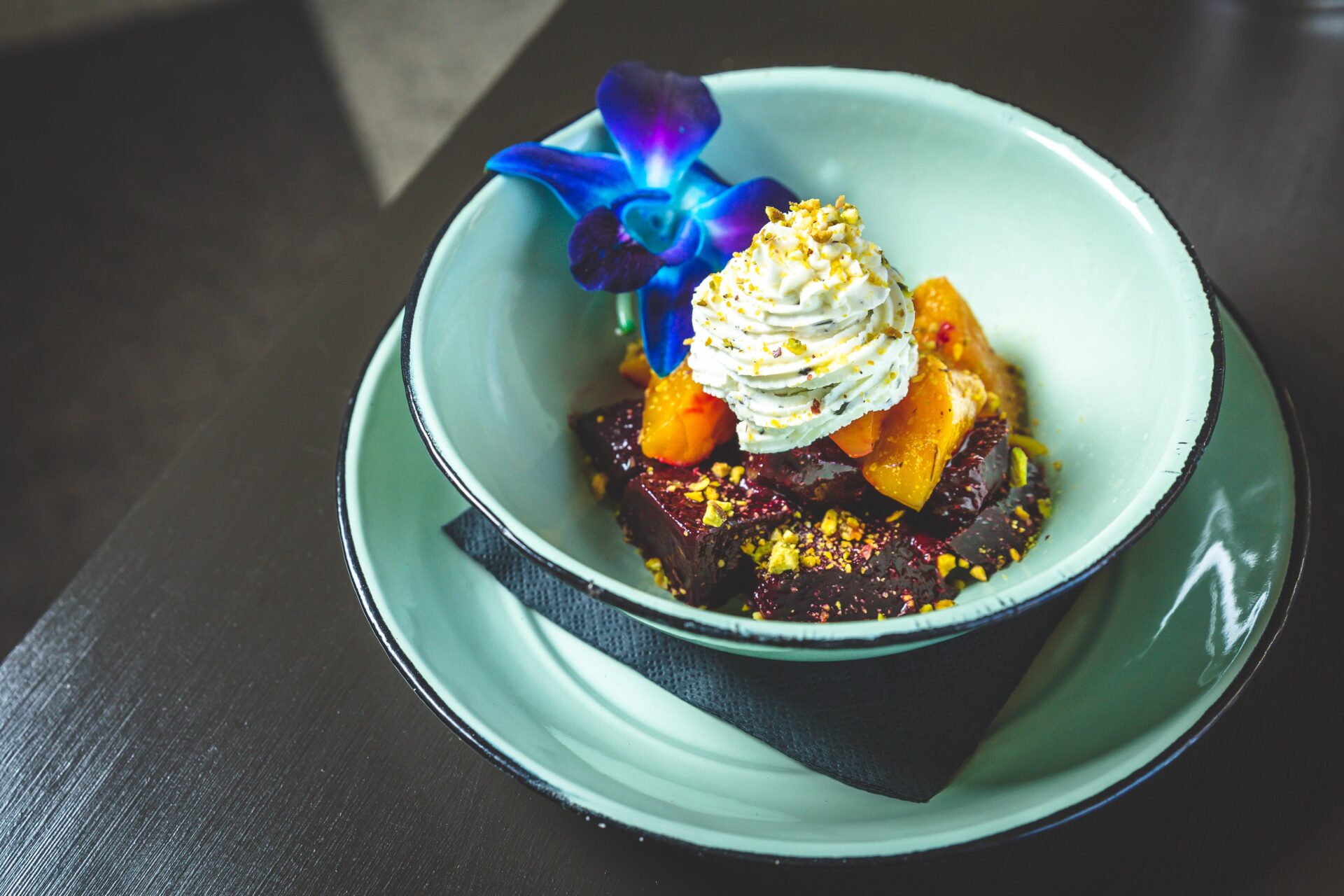
Ekhaya is an elegant dining space where interior elements are a byproduct of Williams’ home, including pieces she and her family hand selected straight from Zimbabwe. African gourds serve as wall art installations; Zimbabwean fabric covers chairs to add zest to the sleek black tables; the bar is covered with straw mats that mimic what Williams used to sleep on; and metal plates in pastel colors sourced from local villages in her hometown serve as vessels that bring the dishes to life.
“Ekhaya is meant to be an elevated African-fusion dining experience—we have curated a menu that encompasses flavors from a variety of African countries by redefining traditional African dishes,” Williams says. There’s a mix of Bantu tapas, like savory sausage rolls wrapped in puff pastry and asparagus drenched in pepper sauce, meant to be shared, and large plates like boboti and a whole fish, which can be an entire meal.
Williams adds, “Since opening we have made a few additions to the menu with emphasis on promoting seasonality,” such as Ethiopian berbere Cornish hen served atop a Nigerian roasted creamy cassava root, and a hearty steak-and-mushroom pie that’s widely eaten across many African countries.
“At Ekhaya, we are unapologetic about staying authentic to the recipes,” says Williams, in hopes of offering something truly unique, delicious, and educational in the Triangle area and beyond.
Can’t Miss at Ekhaya
Dovi rice bites
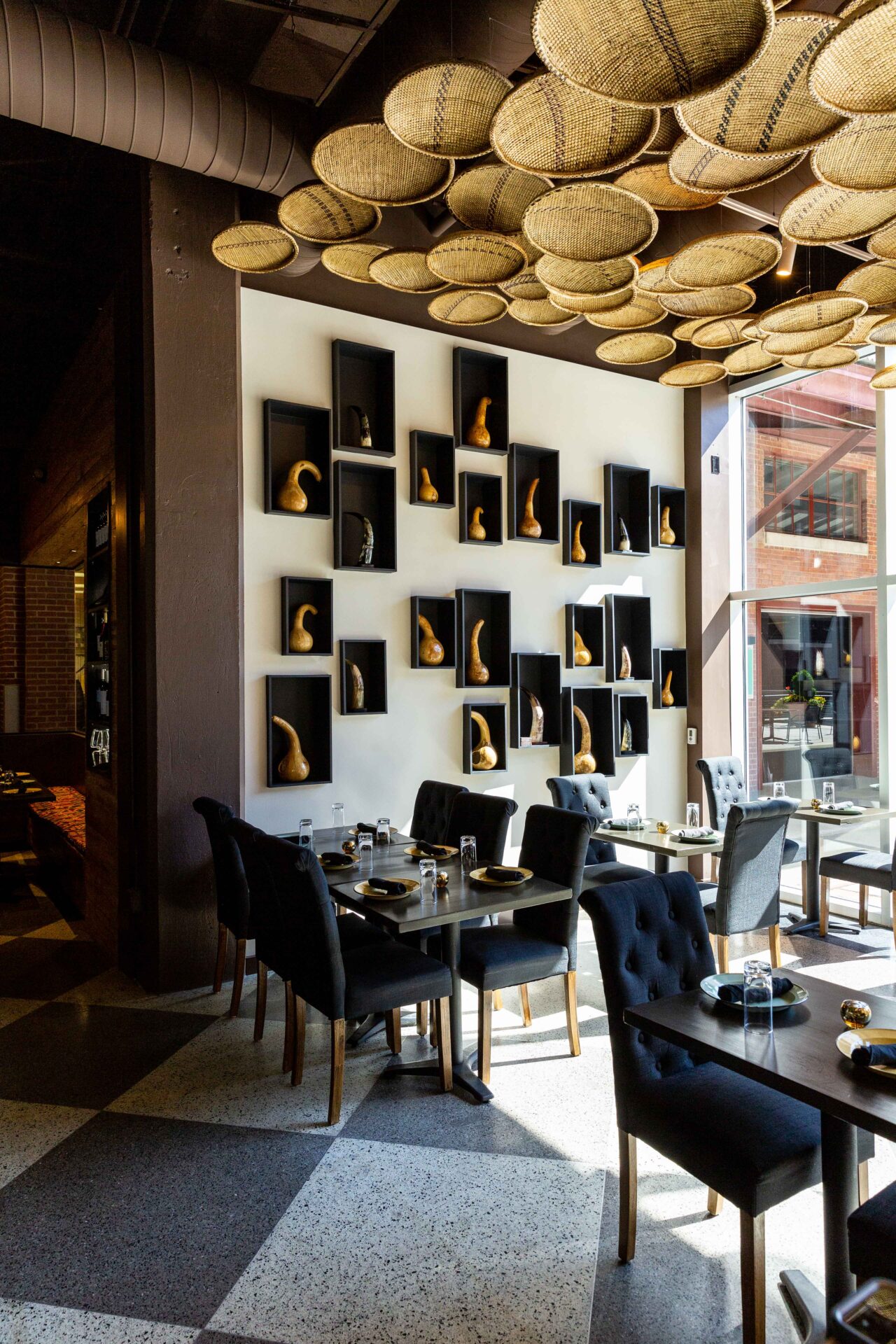
These savory, crispy rice bites incorporate homemade peanut butter (dovi in the Shona language), pepper sauce, and fresh herbs—and they’re wildly addictive. “This dish brings together flavors from Zimbabwe and Nigeria in one dish to create an incredible palate experience,” says Williams.
Bobotie
Bobotie is like meatloaf, but better, and consists of a combination of minced beef seasoned with a slightly sweet curry, cinnamon, and raisins, then topped with a creamy egg soufflé baked to golden perfection.
Roasted whole fish
Williams frequents Capital Seafood Market for fish, which changes according to what’s available and is oven roasted and artfully displayed alongside housemade plantain tortillas and a lip-smacking fennel and dill slaw.
To wash it all down
An African 75, a riff on the French 75, keeps it local with Conniption Kinship gin served with a frozen papaya ball rolled in fig simple syrup and raspberry sorbet, topped with prosecco for a little effervescence.
